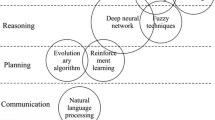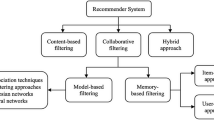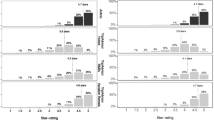Abstract
Recommender systems are often susceptible to well-crafted fake profiles, leading to biased recommendations. Among existing defense methods, data-processing-based methods inevitably exclude normal samples, while model-based methods struggle to enjoy both generalization and robustness. To this end, we suggest integrating data processing and the robust model to propose a general framework, Triple Cooperative Defense (TCD), which employs three cooperative models that mutually enhance data and thereby improve recommendation robustness. Furthermore, Considering that existing attacks struggle to balance bi-level optimization and efficiency, we revisit poisoning attacks in recommender systems and introduce an efficient attack strategy, Co-training Attack (Co-Attack), which cooperatively optimizes the attack optimization and model training, considering the bi-level setting while maintaining attack efficiency. Moreover, we reveal a potential reason for the insufficient threat of existing attacks is their default assumption of optimizing attacks in undefended scenarios. This overly optimistic setting limits the potential of attacks. Consequently, we put forth a Game-based Co-training Attack (GCoAttack), which frames the proposed CoAttack and TCD as a game-theoretic process, thoroughly exploring CoAttack’s attack potential in the cooperative training of attack and defense. Extensive experiments on three real datasets demonstrate TCD’s superiority in enhancing model robustness. Additionally, we verify that the two proposed attack strategies significantly outperform existing attacks, with game-based GCoAttack posing a greater poisoning threat than CoAttack.












Similar content being viewed by others
Availability of data and material
The source code and data are available at https://github.com/greensun0830/Cotraining-Attack.
References
Bobadilla, J., Ortega, F., Hernando, A., Gutiérrez, A.: Recommender systems survey. Knowl.-Based Syst. 46, 109–132 (2013)
Himeur, Y., Sayed, A., Alsalemi, A., Bensaali, F., Amira, A., Varlamis, I., Eirinaki, M., Sardianos, C., Dimitrakopoulos, G.: Blockchain-based recommender systems: Applications, challenges and future opportunities. Comput. Sci. Rev. 43, 100439 (2022)
Lian, D., Wu, Y., Ge, Y., Xie, X., Chen, E.: Geography-aware sequential location recommendation. In: Proceedings of KDD’20, pp. 2009–2019. (2020)
Chevalier, J.A., Mayzlin, D.: The effect of word of mouth on sales: Online book reviews. J. Mark. Res. 43(3), 345–354 (2006)
Wu, C., Lian, D., Ge, Y., Zhu, Z., Chen, E.: Triple adversarial learning for influence based poisoning attack in recommender systems. In: Proceedings of KDD’21, pp. 1830–1840. (2021)
Li, B., Wang, Y., Singh, A., Vorobeychik, Y.: Data poisoning attacks on factorization-based collaborative filtering. NIPS 29, 1885–1893 (2016)
Lin, C., Chen, S., Li, H., Xiao, Y., Li, Q. Lianyun and Yang: Attacking recommender systems with augmented user profiles. In: CIKM, pp. 855–864. (2020)
Liu, H., Hu, Z., Mian, A., Tian, H., Zhu, X.: A new user similarity model to improve the accuracy of collaborative filtering. KBS 56, 156–166 (2014)
Madry, A., Makelov, A., Schmidt, L., Tsipras, D., Vladu, A.: Towards deep learning models resistant to adversarial attacks. arXiv (2017)
Wu, C., Lian, D., Ge, Y., Zhu, Z., Chen, E., Yuan, S.: Fight fire with fire: Towards robust recommender systems via adversarial poisoning training. In: SIGIR, pp. 1074–1083. (2021)
Nguyen Thanh, T., Quach, N.D.K., Nguyen, T.T., Huynh, T.T., Vu, V.H., Nguyen, P.L., Jo, J., Nguyen, Q.V.H.: Poisoning GNN-based recommender systems with generative surrogate-based attacks. ACM Trans. Inf. Syst. 41(3), 1–24 (2023)
Lam, S.K., Riedl, J.: Shilling recommender systems for fun and profit. In: WWW, pp. 393–402. (2004)
Burke, R., Mobasher, B., Williams, C., Bhaumik, R.: Classification features for attack detection in collaborative recommender systems. In: KDD, pp. 542–547. (2006)
Cohen, R., Sar Shalom, O., Jannach, D., Amir, A.: A black-box attack model for visually-aware recommender systems. In: Proceedings of the 14th ACM International Conference on Web Search and Data Mining, pp. 94–102. (2021)
Yue, Z., He, Z., Zeng, H., McAuley, J.: Black-box attacks on sequential recommenders via data-free model extraction. In: Proceedings of the 15th ACM Conference on Recommender Systems, pp. 44–54. (2021)
Zhang, S., Yin, H., Chen, T., Huang, Z., Nguyen, Q.V.H., Cui, L.: Pipattack: poisoning federated recommender systems for manipulating item promotion. In: Proceedings of the Fifteenth ACM International Conference on Web Search and Data Mining, pp. 1415–1423. (2022)
Fang, M., Yang, G., Gong, N.Z., Liu, J.: Poisoning attacks to graph-based recommender systems. In: Proceedings of the 34th Annual Computer Security Applications Conference, pp. 381–392. (2018)
Huang, H., Mu, J., Gong, N.Z., Li, Q., Liu, B., Xu, M.: Data poisoning attacks to deep learning based recommender systems. http://arxiv.org/abs/2101.02644 (2021)
Wang, Q., Lian, D., Wu, C., Chen, E.: Towards robust recommender systems via triple cooperative defense. In: Web Information Systems Engineering–WISE 2022: 23rd International Conference, Biarritz, France, November 1–3, 2022, Proceedings, pp. 564–578. Springer (2022)
Du, Y., Fang, M., Yi, J., Xu, C., Cheng, J., Tao, D.: Enhancing the robustness of neural collaborative filtering systems under malicious attacks. IEEE Trans. Multimedia 21(3), 555–565 (2018)
Si, M., Li, Q.: Shilling attacks against collaborative recommender systems: a review. Artif. Intell. Rev. 53(1), 291–319 (2020)
Ovaisi, Z., Heinecke, S., Li, J., Zhang, Y., Zheleva, E., Xiong, C.: Rgrecsys: A toolkit for robustness evaluation of recommender systems. arXiv (2022)
Chen, L., Xu, Y., Xie, F., Huang, M., Zheng, Z.: Data poisoning attacks on neighborhood-based recommender systems. Trans. Emerg. Telecommun. Technol. 32(6), 3872 (2021)
Guo, H., Tang, R., Ye, Y., Li, Z., He, X.: DeepFM: a factorization-machine based neural network for CTR prediction. arXiv (2017)
He, X., Liao, L., Zhang, H., Nie, L., Hu, X., Chua, T.-S.: Neural collaborative filtering. In: WWW, pp. 173–182. (2017)
Fang, M., Gong, N.Z., Liu, J.: Influence function based data poisoning attacks to top-n recommender systems. In: Proceedings of The Web Conference 2020, pp. 3019–3025. (2020)
Tang, J., Wen, H., Wang, K.: Revisiting adversarially learned injection attacks against recommender systems. In: RecSys, pp. 318–327. (2020)
Jin, B., Lian, D., Liu, Z., Liu, Q., Ma, J., Xie, X., Chen, E.: Sampling-decomposable generative adversarial recommender. Adv. Neur. In. 33, 22629–22639 (2020)
Christakopoulou, K., Banerjee, A.: Adversarial attacks on an oblivious recommender. In: RecSys, pp. 322–330. (2019)
Li, C., Xu, T., Zhu, J., Zhang, B.: Triple generative adversarial nets. Adv. Neural Inf. Proces. Syst. 30 (2017)
Yang, G., Gong, N.Z., Cai, Y.: Fake co-visitation injection attacks to recommender systems. In: NDSS. (2017)
Oh, S., Kumar, S.: Robustness of deep recommendation systems to untargeted interaction perturbations. arXiv (2022)
Fan, W., Derr, T., Zhao, X., Ma, Y., Liu, H., Wang, J., Tang, J., Li, Q.: Attacking black-box recommendations via copying cross-domain user profiles. In: ICDE, pp. 1583–1594. IEEE (2021)
Song, J., Li, Z., Hu, Z., Wu, Y., Li, Z., Li, J., Gao, J.: PoisonRec: an adaptive data poisoning framework for attacking black-box recommender systems. In: ICDE, pp. 157–168. IEEE (2020)
Deldjoo, Y., Noia, T.D., Merra, F.A.: A survey on adversarial recommender systems: from attack/defense strategies to generative adversarial networks. CSUR 54(2), 1–38 (2021)
Yang, Z., Xu, L., Cai, Z., Xu, Z.: Re-scale AdaBoost for attack detection in collaborative filtering recommender systems. Knowl.-Based Syst. 100, 74–88 (2016)
Ge, Y., Liu, S., Fu, Z., Tan, J., Li, Z., Xu, S., Li, Y., Xian, Y., Zhang, Y.: A survey on trustworthy recommender systems. http://arxiv.org/abs/2207.12515 (2022)
Zhang, Y., Tan, Y., Zhang, M., Liu, Y., Chua, T.-S., Ma, S.: Catch the black sheep: unified framework for shilling attack detection based on fraudulent action propagation. In: Twenty-fourth International Joint Conference on Artificial Intelligence. (2015)
Zhang, F., Zhang, Z., Zhang, P., Wang, S.: UD-HMM: an unsupervised method for shilling attack detection based on hidden Markov model and hierarchical clustering. Knowl.-Based Syst. 148, 146–166 (2018)
Zhang, Z., Kulkarni, S.R.: Detection of shilling attacks in recommender systems via spectral clustering. In: FUSION, pp. 1–8. IEEE (2014)
Cao, J., Wu, Z., Mao, B., Zhang, Y.: Shilling attack detection utilizing semi-supervised learning method for collaborative recommender system. WWW 16(5–6), 729–748 (2013)
Cheng, Z., Hurley, N.: Effective diverse and obfuscated attacks on model-based recommender systems. In: Proceedings of the Third ACM Conference on Recommender Systems, pp. 141–148. (2009)
Athalye, A., Carlini, N., Wagner, D.: Obfuscated gradients give a false sense of security: circumventing defenses to adversarial examples. In: ICML, pp. 274–283. PMLR (2018)
Machado, G.R., Silva, E., Goldschmidt, R.R.: Adversarial machine learning in image classification: a survey toward the defender’s perspective. CSUR (1), 1–38 (2021)
He, X., He, Z., Du, X., Chua, T.-S.: Adversarial personalized ranking for recommendation. In: SIGIR, pp. 355–364. (2018)
Li, R., Wu, X., Wang, W.: Adversarial learning to compare: self-attentive prospective customer recommendation in location based social networks. In: WSDM, pp. 349–357. (2020)
Park, D.H., Chang, Y.: Adversarial sampling and training for semi-supervised information retrieval. In: The World Wide Web Conference, pp. 1443–1453. (2019)
Tang, J., Du, X., He, X., Yuan, F., Tian, Q., Chua, T.-S.: Adversarial training towards robust multimedia recommender system. IEEE Trans. Knowl. Data Eng. 32(5), 855–867 (2019)
Yue, Z., Zeng, H., Kou, Z., Shang, L., Wang, D.: Defending substitution-based profile pollution attacks on sequential recommenders. In: Proceedings of the 16th ACM Conference on Recommender Systems, pp. 59–70. (2022)
Hidano, S., Kiyomoto, S.: Recommender systems robust to data poisoning using trim learning. In: ICISSP, pp. 721–724. (2020)
Zhang, F., Lu, Y., Chen, J., Liu, S., Ling, Z.: Robust collaborative filtering based on non-negative matrix factorization and R1-norm. Knowl.-Based Syst. 118, 177–190 (2017)
Yu, H., Gao, R., Wang, K., Zhang, F.: A novel robust recommendation method based on kernel matrix factorization. J. Intell. Fuzzy Syst. 32(3), 2101–2109 (2017)
Smith, B., Linden, G.: Two decades of recommender systems at Amazon.com. IEEE Internet Comput. 21(3), 12–18 (2017)
Gomez-Uribe, C.A., Hunt, N.: The Netflix recommender system: algorithms, business value, and innovation. ACM Trans. Manag. Inf. Syst. (TMIS) 6(4), 1–19 (2015)
Wu, Z., Wang, Y., Cao, J.: A survey on shilling attack models and detection techniques for recommender systems. Chinese Sci. Bull. 59(7), 551–560 (2014)
Zhang, J., Xu, X., Han, B., Niu, G., Cui, L., Sugiyama, M., Kankanhalli, M.: Attacks which do not kill training make adversarial learning stronger. In: ICML, pp. 11278–11287. PMLR (2020)
Yuan, F., Yao, L., Benatallah, B.: Adversarial collaborative neural network for robust recommendation. In: SIGIR, pp. 1065–1068. (2019)
Raghunathan, A., Xie, S.M., Yang, F., Duchi, J.C., Liang, P.: Adversarial training can hurt generalization. http://arxiv.org/abs/1906.06032 (2019)
Acknowledgements
The work was supported by grants from the National Natural Science Foundation of China (No. 62022077).
Funding
The work was supported by grants from the National Natural Science Foundation of China (No. 62022077).
Author information
Authors and Affiliations
Contributions
Qingyang Wang and Chenwang Wu contribute equally to this paper, including algorithm implementation, experimental data collation, and paper writing. Defu Lian and Enhong Chen proofread the manuscript. In addition, all authors reviewed the manuscript.
Corresponding author
Ethics declarations
Ethical approval
Not applicable. I declare that this paper does not involve any human or animal studies, so no ethical issues are involved.
Competing interests
The authors declare no competing interests.
Additional information
Publisher's Note
Springer Nature remains neutral with regard to jurisdictional claims in published maps and institutional affiliations.
Rights and permissions
Springer Nature or its licensor (e.g. a society or other partner) holds exclusive rights to this article under a publishing agreement with the author(s) or other rightsholder(s); author self-archiving of the accepted manuscript version of this article is solely governed by the terms of such publishing agreement and applicable law.
About this article
Cite this article
Wang, Q., Wu, C., Lian, D. et al. Securing recommender system via cooperative training. World Wide Web 26, 3915–3943 (2023). https://doi.org/10.1007/s11280-023-01214-7
Received:
Revised:
Accepted:
Published:
Issue Date:
DOI: https://doi.org/10.1007/s11280-023-01214-7




